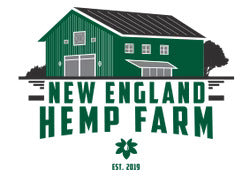Why We're Different
We are a family owned and operated, New England based CBD Company. New England Hemp Farm is committed to providing our customers with the Finest Quality CBD products made.
We use our 30+ years of Farming Experience in Connecticut to grow Premium Quality Hemp and to source onlythe Finest Quality, US produced, CBD Oilavailable in the marketplace.
Each of our product includes 3rd party independently tested certificateRich composition include less then 0.3% of THC
